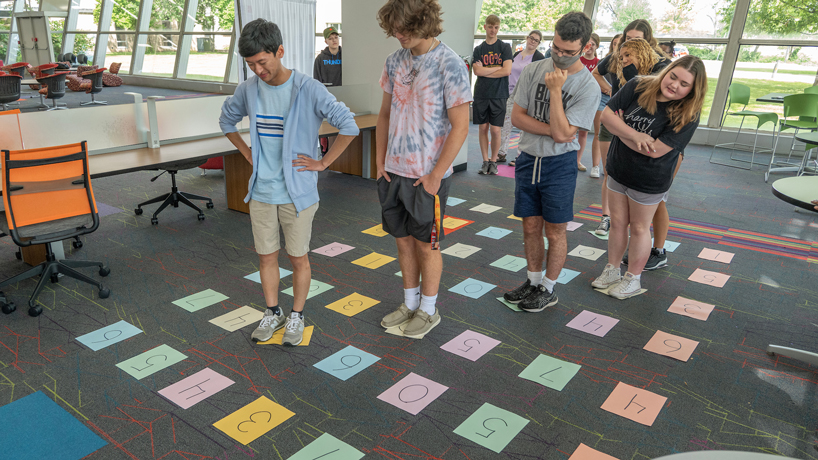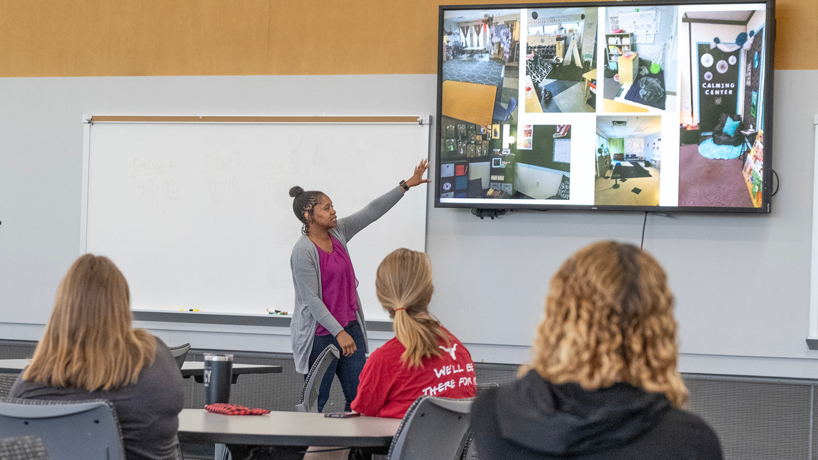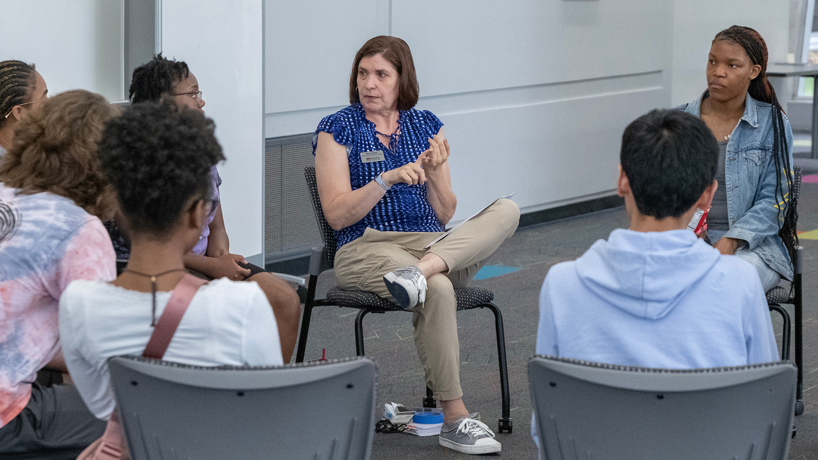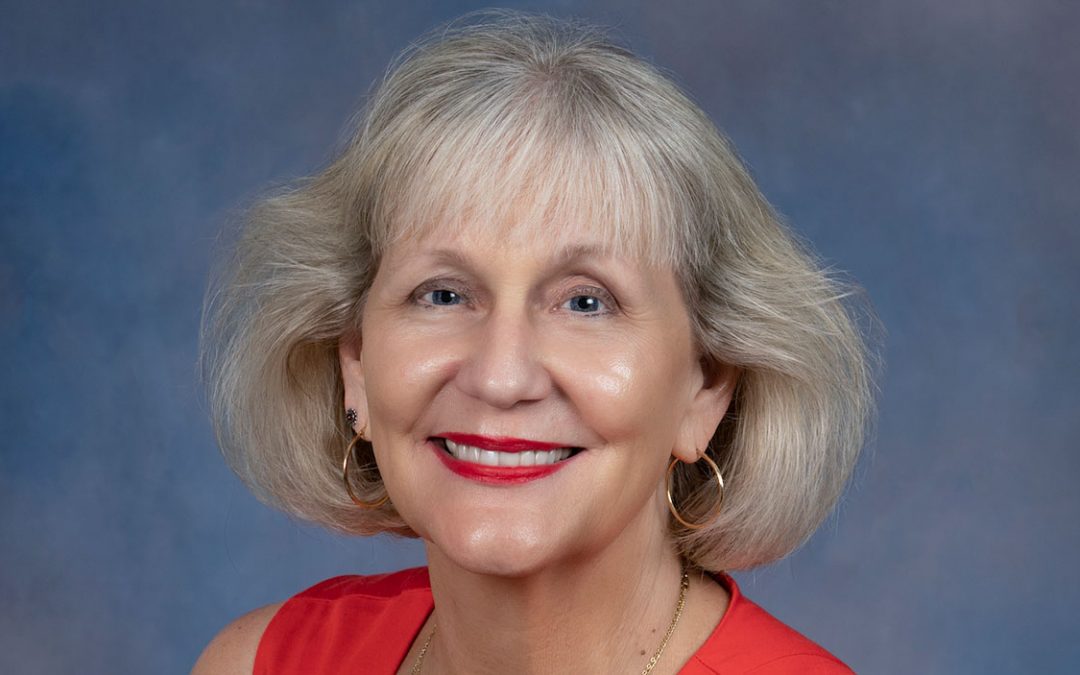
Students contemplate their next move in solving a puzzle during the UMSL College of Education’s Future Teacher Leadership Academy 2023. The academy is designed to give high school students a vision for a career in education. (Photos by Derik Holtmann)
Acayla Wright has been interested in teaching since grade school, moved by the example of her own teachers. Now heading into her junior year of high school, Wright wants to work in early childhood education, and she seized the opportunity to participate in the Future Teacher Leadership Academy at the University of Missouri–St. Louis.
“I’ve always wanted to be a teacher because most of my teachers growing up were good role models,” Wright said. “That’s what really got me into wanting to be a teacher. I feel like I want to step into that role and being that role model for somebody else.”
The Future Teacher Leadership Academy is a collaboration between the College of Education and the UMSL Office of Precollegiate Services, and it is designed to give students an opportunity to be on a college campus to stir and encourage an interest in post-secondary education and consider a career in teaching. It is funded primarily through a $30,000 grant from the Missouri Department of Elementary and Secondary Education, which requires outreach to underrepresented groups. One hope is also to attract more males into teaching roles as they represent only about 23% of teachers in public elementary and secondary schools across the country.
UMSL graduate student and educator Keisha Moody-Seymour speaks about how to use space in the classroom during the Future Teacher Leadership Academy last week in the ED Collabitat.
Wright was one of 14 students from nine high schools who participated in the free two-week program, which is in its second year. From June 12-23 at the ED Collabitat, students were introduced to the fundamentals of teaching, and the students received one college credit and a $500 stipend.
Participating high schools included: Brentwood, Kirkwood, Maplewood Richmond Heights, Normandy, Oakville, Parkway South, Parkway West, Pattonville and STEAM Academy at McCluer South-Berkeley.
The program was generated from conversations regarding recruitment and retention between the College of Education’s recruitment coordinator, David Stofer; Chanua Ross, the director of professional learning and innovation; Nancy Singer, associate dean and director of teacher education; and Julie Smith Sodey, assistant chair of educator preparation and leadership.
In addition to learning about teaching as a profession, Stofer hopes FTLA has an impact on participating students who may not have believed going to college was a viable option.
“I think it’s a huge challenge for our local districts that are primarily in underserved communities that have a very low percentage of kids going to college in general,” Stofer said. “They want to do everything they can to try to get kids a vision for going to college. And they think – and I agree – the best way to do that is to get them on a college campus to see what it looks like and to see themselves there someday. What we are focusing on is finding ways to help them learn what it would be like to be a teacher because everybody knows about the teacher shortage, how rampant it is all around the country and especially within our community.”
The effort to attract students to teaching seemed to have been effective with soon-to-be Brentwood High School senior Kevin Ou.
Ou has been tutoring math students in high school and then in a Teaching Foundations class last school year that was geared to attract students to become educators. After taking the class and noticing that his tutees improved their grades due to his assistance, teaching became a real consideration.
Karen Allman, an academic advisor in the College of Education, talks to high school students about different approaches to test taking.
“Sometimes I would tutor kids above my grade in math because I just excelled at it,” Ou said. “They tell me how good of a teacher I am, so it might be one of the things I grow up to do.”
The FTLA program built upon what Ou learned in his high school course.
“I think this is a good way for me to refresh key concepts,” he said. “I learned something new from this that could possibly help me with my tutoring.”
In addition to gaining an understanding about teaching, Ross believes the FTLA program is a beneficial introduction to college-level learning and the College of Education.
“They’re allowed to enroll in college coursework led by actual COE faculty and staff,” she said, “which gives them an early opportunity to build relationships and engage in our program.”
Singer agrees that students walk away from the program with multifaceted knowledge.
“Through this experience, students have earned college credit, but they’ve also learned about topics related to higher education such as navigating financial aid and test-taking skills,” Singer said. “Most importantly, though, they’ve heard from dedicated professionals – including two UMSL graduates who went on to be Missouri Teacher of the Year – about how important and rewarding a career in education can be.”
















